
Gender and Health Certificate Program
The Gender and Health Certificate Program provides concrete training in gender and health with particular focus on gender theories, gender analysis, gender-based violence research methods, gender and sexuality, gender and women’s health, gender and men’s health, and intersectionality.
Program sponsored by: Departments of HEALTH, BEHAVIOR AND SOCIETY, INTERNATIONAL HEALTH, AND POPULATION, FAMILY AND REPRODUCTIVE HEALTH
To learn about the program and how to apply, visit the main page for details.
Explore profiles of our current certificate students profiles below.
Student Profiles
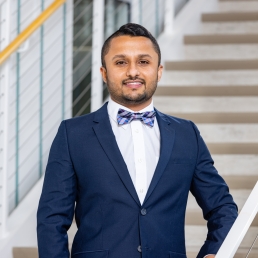
Amit "Mickey" Dhir
Department: The Center for Infectious Disease and Nursing Innovation (CIDNI)
School: School of Nursing
Current Degree Program: Ph.D.
Expected Graduation Date: May 2026
Capstone and/or Practicum: Ph.D. Dissertation - Exploring the Acceptability and Impact of Long-Acting Injectable Pre-Exposure Prophylaxis Among Persons Assigned Male at Birth in Baltimore City
Why are you doing the Gender and Health Certificate? The Gender and Health Certificate program offers essential training in gender theories, gender analysis, gender-based violence research methods, gender and sexuality, gender and women’s health, gender and men’s health, and intersectionality. This knowledge is crucial for my PhD research, which focuses on improving PrEP uptake and persistence outcomes and lowering HIV incidence rates among sexual minority individuals at the intersection of gender. By understanding these concepts, I can develop interventions that address the diverse needs and barriers faced by communities that are marginalized, ultimately contributing to more effective HIV prevention strategies and promoting health equity.
What impact will the Certificate have on your career? This program will have a significant impact on my career by equipping me with specialized knowledge and skills in gender and health, particularly in the context of HIV prevention and sexual minority populations. It will enhance my ability to conduct rigorous research, develop evidence-based interventions, and advocate for policies that promote health equity and address disparities in HIV care. I am also passionate about teaching and training the next generation of students, clinicians and researchers on gender and health topics. Sharing this knowledge and expertise with future professionals will contribute to building a more inclusive and knowledgeable workforce dedicated to addressing health disparities and promoting equity in healthcare. Additionally, completing this program will broaden my professional network and provide opportunities for collaboration with experts in the field, further enhancing the impact of my work and contributing to advancements in public health and LGBTQIA+ healthcare.
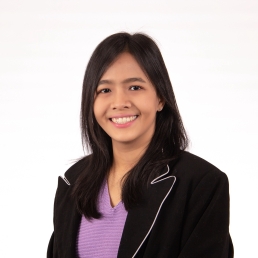
Ei Mon Han
Department: Population, Family and Reproductive Health
School: Bloomberg School of Public Health
Current Degree Program: MHS
Expected Graduation Date: May 2024
Capstone and/or Practicum: Master Thesis on Scoping Review of GBV Response Interventions in Conflict Settings
Why are you doing the Gender and Health Certificate? Finding out about the Gender and Health Certificate is the highlight of my graduate program here at Bloomberg. I was so glad to find the kind of certificate offering an array of courses across different departments of Bloomberg. The courses cover my interests and provide additional new topics which are of great benefit of my professional knowledge on Gender and Health.
What impact will the Certificate have on your career? Coming from the program implementation background, the certificate program has contributed greatly to my career transition into research area. This certificate has made me a confident person to begin my career in research field of work!
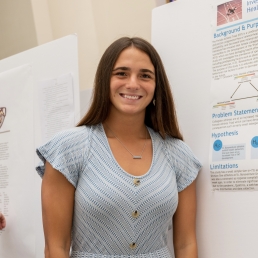
Kacie Filian
Department: International Health
School: Bloomberg School of Public Health
Current Degree Program: MSPH
Expected Graduation Date: May 2024
Capstone and/or Practicum: I am a part of a research study with my PI Dr. Anita Shet implementing and evaluating a physical fitness program for YLHIV in South India known as the Positive Running Program. We are evaluating the comprehensive health and resiliency of participants through a general health survey, psychosocial questionnaire and physical fitness assessment. My specific objective is to incorporate a gender lens in to the evaluation process by utilizing sex-disaggregated data and conducting FGDs in order to collect participant responses on strategies to foster girl's empowerment with the aim of future iterations of the intervention becoming gender transformative.
Why are you doing the Gender and Health Certificate? A quote that has always stuck with me is from American paleontologist and early feminist Stephen Jay Gould, from his book "The Panda's Thumb", in which he stated "I am, somehow, less interested in the weight and convolutions of Einstein's brain than in the near certainty that people of equal talent have lived and died in cotton fields and sweatshops". I believe his commentary on equality and equal opportunity also extends to empowering women in global health. What became apparent to me after my first year of didactic coursework in the International Health Department is that we must support developing nations in educating young girls as it is the key to continued progress. Doing so fosters twice the amount of future leaders and is critical in solving so many global health issues as female literacy is proven to increase the economic, social and health standards of an entire nation. I think the Gender and Health Certificate provides the needed perspective and tools for those with similar goals in advancing women's education and health globally.
What impact will the Certificate have on your career? With this Certificate, I am confident in my future ability as an implementation scientist to recognize the potential for any and all interventions to be gender transformative. I believe I now possess the methodological tool kit and theoretical basis to be an advocate for the empowerment of marginalized SOGIE populations throughout the research process (from design to implementation and evaluation), so that inclusion of these populations is the expectation/standard in research practice.

Karime Jiménez Limas
Department: Environmental Health & Engineering
School: Bloomberg School of Public Health
Current Degree Program: MPH
Expected Graduation Date: May 2024
Capstone and/or Practicum: Practicum: "It's weWomen Plus" Project for Immigrant Women's Health, Safety, and Empowerment and Capstone: Orphans of Femicide in Mexico: Indirect Victims (A Critical Review of the Literature)
Why are you doing the Gender and Health Certificate? I am taking the Gender and Health Certificate courses because I hold a deep commitment to tackling the public health challenges associated with gender-based violence, especially within the context of Latin America and Low and Middle-Income Countries. My exposure to the realities of gender-based violence has fueled my dedication to public health practice, specifically focusing on prevention strategies and addressing the health impacts of such violence.
What impact will the Certificate have on your career? The courses provided by the Gender and Health Certificate have deepened my understanding of the underlying factors contributing to health inequities related to gender-based violence which will empower me to develop comprehensive intervention strategies for preventing and improving health outcomes related to it. Overall, the certificate courses will serve as a catalyst for advancing my career trajectory and making meaningful strides toward addressing gender-based violence and promoting health equity on a global scale.
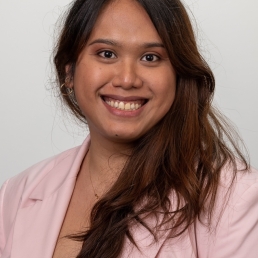
Martha de la Paz
Department: Health, Behavior, and Society
School: Bloomberg School of Public Health
Current Degree Program: MPH
Expected Graduation Date: May 2024
Capstone and/or Practicum: Practicum: Building a Person-Centered Network: Supporting LGBTQ+ Marylanders to Access the Care They Deserve! and Capstone: A scoping review on the influence of gender affirming care on HIV outcomes among transgender and gender expansive individuals
Why are you doing the Gender and Health Certificate? I'm passionate about making systemic changes to promote LGBTQI+ health and wellbeing. I saw the Gender and Health Certificate as an excellent opportunity to strengthen my academic knowledge on theories and frameworks relevant to LGBTQI+ health, gain skills in gender programming and evaluation, and engage with a network of professionals passionate to make change for LGBTQI+, women's and men's lives.
What impact will the Certificate have on your career? The Certificate has provided me an opportunity to sharpen my academic writing on transgender health, as well as collaborate with experts in the field and apply the knowledge I gained through research and advocacy.
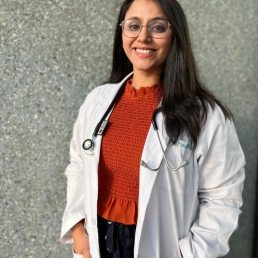
Mauli Chirag Mehta
Department: --
School: Bloomberg School of Public Health
Current Degree Program: MPH
Expected Graduation Date: May 2024
Capstone and/or Practicum: Investigating the associations between living environment, gender and prognosis of psychiatric disorders
Why are you doing the Gender and Health Certificate? Working in SRHR and as a physician back in India made me realize the vitality of gender and the extent to which gender equity forms a central core of ensuring inclusivity. Embarking on the journey of my Master of Public Health at the esteemed Johns Hopkins Bloomberg School of Public Health, I found myself drawn to the intricate interplay between gender dynamics and healthcare. Recognizing the pivotal role of gender equity in fostering inclusive healthcare systems, I am committed to delving deeper into this crucial intersection through the Gender and Health Certificate program.
What impact will the Certificate have on your career? I intend to practice as in OBGYN in the future and I truly believe that forming a solid foundation of gender dynamics within the healthcare space will further help me in practicing as an inclusive provider.
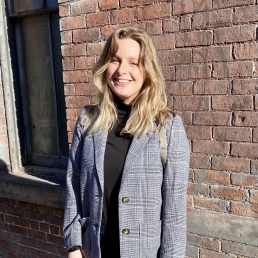
Rosie Laine
Department: Health Policy and Management
School: Bloomberg School of Public Health
Current Degree Program: Ph.D.
Expected Graduation Date: 2027
Capstone and/or Practicum: --
Why are you doing the Gender and Health Certificate? As a public health researcher I am dedicated to advancing gender equity. My doctoral research is broadly focused on sexual and reproductive health and justice, and more specifically perinatal health outcomes among people who are incarcerated. The Gender & Health certificate allows me to explore these interests in the classroom, and to learn more about other topics through informative elective coursework! I also really enjoy meeting other students who have similar objectives for their public health career.
What impact will the Certificate have on your career? The Gender & Health certificate allows me to engage with the intersections of gender and health through my elective coursework. These courses will push me to ask better questions as a researcher, and to better advocate for my research to translate into practice that improves the lives of women and gender minorities. This certificate also has allowed me to meet other students and professors who are interested in advocating for gender equity in health systems.
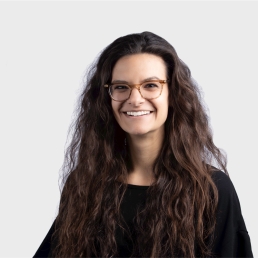
Shelby Rohlff
Department: Population, Family and Reproductive Health
School: Bloomberg School of Public Health
Current Degree Program: MSPH
Expected Graduation Date: May 2025
Capstone and/or Practicum: I'm working with Dr. Arik Marcell on Health E You, a web-based mobile health app that aims to teach adolescents about sexual and reproductive health. Specifically, we are adapting the app that exists for female adolescents and building out the app to cater to individuals of all sexes and genders.
Why are you doing the Gender and Health Certificate? It's important to understand the impact that gender systems, norms and expectations can affect one's access to healthcare, health outcomes, knowledge, and behaviors in order to most effectively create and implement interventions. My focus is in sexual and reproductive health and I think taking an intersectional gender lens in this space is particularly interesting, especially since SRH has historically been focused on cisgendered heterosexual females!
What impact will the Certificate have on your career? I think that the one of the most important skills I've learned from the certificate coursework is to critically analyze and think about gender in every step of the research process, from how you frame questions to who you sample to how you understand the data. I'm excited to be able to use a gender lens in my future work!
